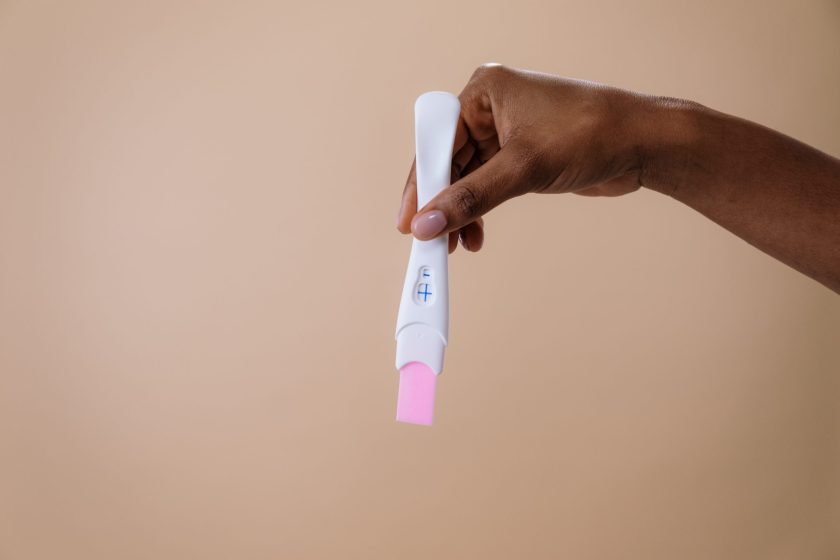What Are the Early Signs of Pregnancy?

“Conception”! When sperm meets egg. It happens about two weeks before your missed period. This means that your pregnancy journey starts before you even miss your period. Some people notice pregnancy symptoms start this early too. The hormonal changes of pregnancy cause changes that can affect your body in lots of ways. Here’s a review of some common symptoms and complaints of early pregnancy.
Positive urine pregnancy test: Urine pregnancy tests detect the presence of a hormone called HCG in your urine. This is the single best sign that you are pregnant! Modern pregnancy tests are really sensitive, and can often register a positive result up to a week before you expect your period. You can buy them at all pharmacies and online too. You’ll follow the instructions on the box, but they’re all simple to use: you pee either directly on the test strip, or dip it in a cup of pee, wait for a certain amount of time, and read the result. It’s best to use your first pee of the day right when you wake up because it has the highest hormone concentration. The “false positive” rate is basically zero, so if you have even the faintest positive test, you’re definitely pregnant. A negative pregnancy test can mean one of two things: either that you’re not pregnant, or you tested too early for the HCG hormone to get picked up. If you have a negative test, but you suspect you might be pregnant, you can always wait a few days and repeat the test.
Missed menstrual period: This is, of course, a classic sign of pregnancy, but it’s not always so simple. If you don’t have regular menstrual cycles, the concept of when a period counts as “missed” may not be clear. On top of that, some people have light early pregnancy bleeding or spotting that can be confused for a period. In most cases though, a menstrual flow typical of what you usually get is evidence that we’re not pregnant. This is because the lining of the uterus builds up to house the fertilized egg, but if no egg arrives, our body sheds the lining in preparation for next month.
Breast tenderness: Pregnancy causes hormonal changes that can impact other parts of the body. Breast or nipple tenderness is a classic example. Pregnancy hormones can make your breasts feel tender or enlarged. Sometimes the breasts become so tender that touch or even wearing a bra can be intolerable.
Bloating & cramping: Some people feel uterine cramping or abdominal bloating in early pregnancy. For some, this “I’m about to get my period” feeling sticks around for a few days to a few weeks.
Increased urination: I have to admit, this was an early symptom of my own pregnancy that totally blew my mind. I NEVER get up in the middle of the night to pee, and yet AS SOON as I was pregnant, I woke up several times a night. Pregnancy causes your body to take on extra blood volume to support the pregnancy, and extra blood means extra work for your kidneys, and extra work for your kidneys means extra urine.
Nausea or vomiting (or both): Often referred to as “morning sickness,” nausea and vomiting of pregnancy can happen at all times of the day. Some people never have nausea and some have a terrible form of pregnancy vomiting called hyperemesis gravidarum, but most people land in the middle with intermittent nausea or vomiting that lasts for the first 10-12 weeks of pregnancy. What can you do to make it better? Stay well hydrated and never let your stomach be totally empty (the empty stomach factor seems to be why most people associate this symptom with the morning). Keep some bland crackers by your bed and eat a few before you even stand up out of bed. Try taking your prenatal vitamin at night (sometimes the vitamins make the nausea worse), or try skipping your prenatal vitamin for a week to see if it helps (don’t worry, you can add it back later). People with daily nausea or vomiting find that a combination of doxylamine (the active ingredient in Unisom, an over the counter sleep aid medication) taken at night plus B6 vitamin taken one to three times per day, can help with symptoms.
Sensitivity to smells or tastes: This is a weird one. Some people find that, in pregnancy, certain strong smells (such as perfume or cleaning products) are intolerable. And things you might have loved to eat pre-pregnancy can suddenly turn your stomach. This seems to be evolutionary protection in overdrive. Your body doesn’t want you to eat food in pregnancy that would be dangerous to you or the fetus, so it makes you extra sensitive. Like I said, a weird one, and people disagree why this happens.
Fatigue: The hormones of pregnancy can make you really tired, and the first trimester is often the peak experience of fatigue in pregnancy. The tough part is that you don’t yet look pregnant so you won’t have strangers giving up their seats for you. Listen to your body & rest when you need to. Naps are your friend. You’re likely to get your energy back once you hit the second trimester around 14 weeks.
Mood changes: Pregnancy hormones come on in a flood, so don’t be surprised if you notice mood swings as an early sign of pregnancy. Short temper? Randomly tearful and weepy? Try to be gentle with yourself and know that it is normal for your body and your emotions to need some extra attention.
Constipation: Early pregnancy is a time when you have a lot of circulating progesterone. This hormone acts to keep the muscle of the uterus quiet. Know what else in your body is made of similar muscle? Your intestines. All that circulating progesterone has the effect of keeping your intestines quiet too. Add in a little extra iron in the form of your prenatal vitamin and constipation in early pregnancy can become a real problem. Increase your hydration and the amount of fiber in your diet, and keep your body moving with some light exercise. On the supplement front, consider switching to an alternate iron supplement, make sure you’re getting magnesium in your prenatal or separately, and consider probiotics.
Ask a midwife
Early pregnancy can be a challenging and confusing time. At Oula, we’re here to help. Our Virtual Early Prenatal Coaching visit is designed to help you navigate this time. Schedule it as soon as you have a positive pregnancy test! The average pregnancy clinic will suggest your visit be around week 7 or later, but we know you may have questions about symptoms and what to expect sooner than that. The virtual visit will give you an opportunity to spend one-on-one time with an Oula midwife to answer all of your questions, take a deep dive into your medical history, and plan the earliest steps of your pregnancy journey!
